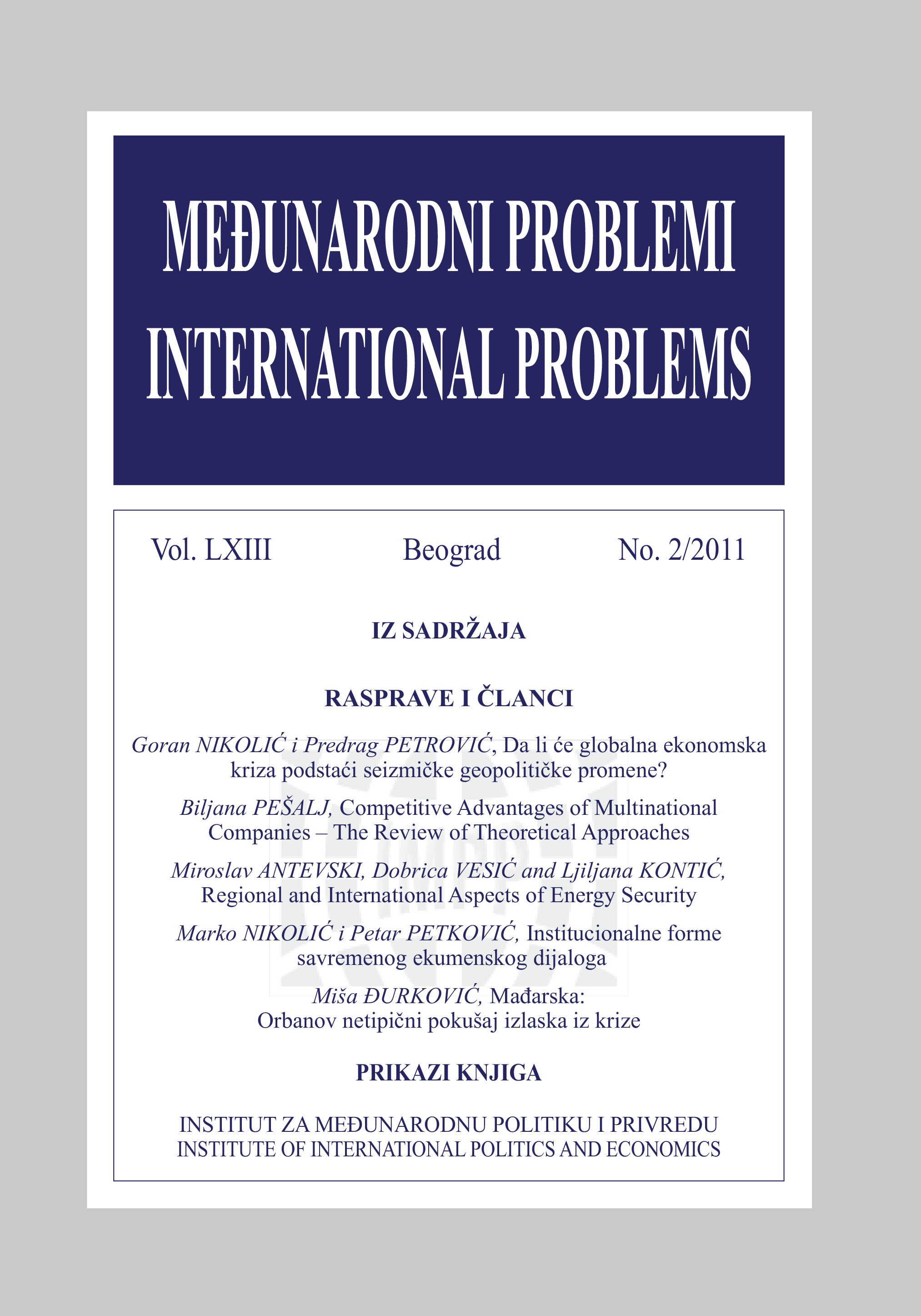Institucionalne forme savremenog ekumenskog dijaloga
Institutional Forms of Contemporary Ecumenical Dialogue
Author(s): Marko Nikolić, Petar PetkovićSubject(s): Politics / Political Sciences
Published by: Институт за међународну политику и привреду
Keywords: Ecumenism; ecumenical movement; World Council of Churches; Conference of European Churches; Parliament of World Religions
Summary/Abstract: The article deals with ecumenism and the most important examples of its “institutionalisation”. It is stated that ecumenism implies the doctrine (idea), universal inter–church movement and the proclaimed goal of achieving Christian unity. It possesses at least theological, sociological and political determinants. The World Council of Churches is a universal inter–church forum for dialogue and cooperation that lacks clear ecclesiological identity. However, it is getting the characteristics of a typical international political movement. The Conference of European Churches is a similar European organization. The Parliament of World Religions tends to found and promote “global ethics” in order to accomplish pacifistic goals in the world
Journal: Међународни проблеми
- Issue Year: LXIII/2011
- Issue No: 2
- Page Range: 276-296
- Page Count: 21
- Language: Serbian

